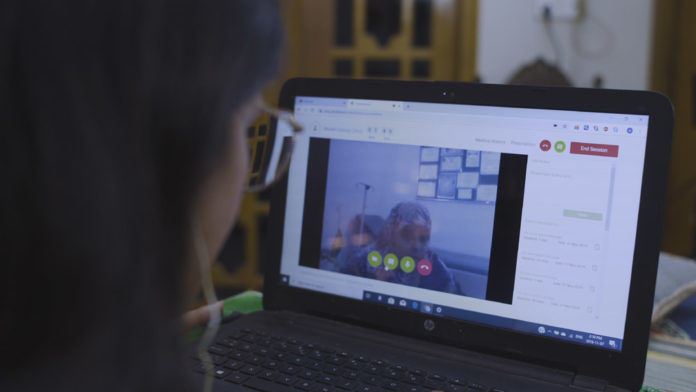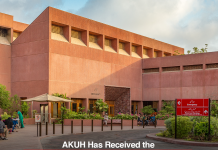Lahore (Muhammad Yasir) “In Pakistan, during COVID19, patients are scared to go to hospitals to avoid exposure, elderly are isolated and confined within their home being most at risk, children and pregnant mothers are unable to find doctors in case of emergencies. In this time of national crisis, the technology of telemedicine can play a great role in acting as an enabler to help many patients in need”. These thoughts are being expressed by leading healthcare professionals of Pakistan, acting as the frontline soldiers in the fight against coronavirus.
Globally, telemedicine is being used right now by doctors to connect to patients who can be treated at home for primary care ailments. This technology is enabling safer diagnosis and limiting unnecessary contact between patients and healthcare providers. In Pakistan, Sehat Kahani is a telemedicine platform that connects female doctors to patients in need using telemedicine using a network of e-clinics in low income communities and via mobile application for corporate companies and consumers. This app connects any patient who is in need of help, counselling and education on COVID-19 to qualified PMDC licensed female doctors 24/7, while maintaining social distancing, isolation and quarantine.
Sehat Kahani, an e-health start-up supported by 4Afrika, uses Microsoft platforms to provide patients who are far from healthcare centres with access to qualified doctors via a telemedicine platform, while cloud computing services mean that their patient records are immediately available anywhere using a mobile device.
Telemedicine can perform a vital role in enabling people to access healthcare services, remote diagnoses, and treatment plans. During the Covid-19 crisis, Sehat Kahani is using its smartphone app to provide virtual consultations to patients across Pakistan, delivering educational content about the pandemic, and helping to direct them to the correct healthcare facilities if necessary. Using its telemedicine platform, it has educated more than a million users about the virus, and provided more than 6,000 online consultations with patients. The company currently has more than 160 female doctors working non-stop to support citizens through this health crisis.
The current global crisis has highlighted a number of areas, from the need of efficient information management to the need of accurate data gathering for faster medical response. In looking at the role of technology during this period, one area that has stood apart in driving meaningful change is the role of partnerships. Today, more than before, Microsoft 4Afrika is steadfast in supporting healthcare partners as they adapt their platforms and services to meet current needs.
Microsoft, through its 4Afrika initiative, has formed strategic partnerships with healthcare providers throughout Africa and beyond, providing them with technical support and business consultancy to help them achieve their goals. Each of these healthcare providers has had a significant impact in their sphere of influence, but with the onset of the Covid-19 pandemic, we’ve seen how our partners have used their existing platforms and programmes to pivot and adapt existing technologies to rapidly provide the much-needed response to address the challenges of the pandemic.
Artificial intelligence and machine learning are already used in healthcare, but in a rapidly evolving situation, these tools can significantly help boost response times and preparedness. When Microsoft 4Afrika first partnered with Broad Reach, they were striving to create and implement data-driven solutions to improve the management and delivery of health programmes in underserved regions around the world.
During the Covid-19 crisis, Broad Reach has moved quickly to repurpose its existing platforms. Partnerships like the one with Broad Reach demonstrate the significant value that technology can deliver in situations that are rapidly changing and require high volumes of data from disparate sources to be quickly analysed for use in prediction and preventative measures.







